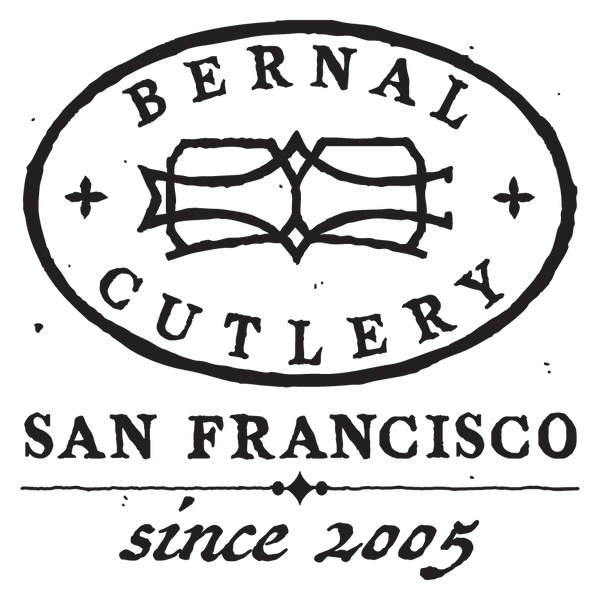-
Currency
-
NEW
- All New Products
- New Kitchen Knives
- New Kitchen Tools
- Latest Vintage
- New Outdoor & Utility
- New Pantry
-
What's in my Basket Series
- Dr. Harold McGee - Author
- Ryo Sakai -Kuma Sushi
- Ian McNemar - Woodworker, Instructor
- Anna Voloshyna - Author
- Jorge Martinex Lillard - Lolo´
- Chris Yang - Piglet & Co
- Griffin Wilson - @cabincorn
- Gabe Rudolph - Gestura Utensils
- Marc Schechter - Square Pie Guys
- Molly DeCoudreaux - Food Photographer
- Geoff Davis - Burdell Soul Food
- Jen and Wes - @crazythickasians
- Josh Donald - Bernal Cutlery
- Kelly Kozak - Bernal Cutlery
- Jessica Sullivan - Poppy SF
- Sylvan Mishima Brackett - Rintaro
- Michael Myers - Film Character
- Ali Hooke - @alihooke
- Bruce Hill - The Chef's Press
- Dylan Carasco - Butcher's Guide
- Spencer Horowitz - Hadeem
-
Japanese Knives
- Ashi Hamono
- Gihei Knives
- Godo Tadaharu
- Hado
- Hatsukokoro
- Hitohira
- Iwasaki Kamisori
- Kaji-Bei
- Kamo Shiro
- Kanehide
- Konosuke
- MAC Knife
- Masakane
- Makoto Tadokoro Marushin
- Morihei
- Myojin Riki Sesakusho
- Nakagawa Hamono
- Naozumi
- Nigara Hamono
- Sakai Kikumori
- Shigefusa
- Tagai
- Takada no Hamono
- Tanabe Tatara
- Tosa
- Tsukasa Hinoura
- Yoshikane
- Yoshikazu Tanaka
- Wakui
-
Global Knives
- Allday Goods (GBR)
- Alma Knife Co. (USA)
- Astral Works (USA)
- Au Sabot (FRA)
- Benchmade Cutlery (USA)
- Bernal Cutlery (USA)
- Blenheim Forge (GBR)
- Chazeau Honoré (FRA)
- Dexter Russell (USA)
- Eichenlaub Tableware (DEU)
- Florentine Kitchen Knives (ESP)
- Fontenille Pataud (FRA)
- Friedr Herder (DEU)
- J Adams (GBR)
- John Nowill & Son (GBR)
- K Sabatier (FRA)
- Pallares (ESP)
- Rolin Knives (USA)
- Silverthorn (USA)
- Steelport Knife Co. (USA)
- Windmühlenmesser (DEU)
- Zirh (TUR)
-
Pocket | Outdoor
- A Wright & Son (GBR)
- Andersson & Copra (SWE)
- Au Sabot Folders (FRA)
- Benchmade Folders (USA)
- Buck Knives (USA)
- David Margrita (FRA)
- Friedr Herder Folders (DEU)
- Fontenille Pataud Folders (FRA)
- Helle (NOR)
- Higonokami (JPN)
- Hults Bruks Axes (SWE)
- Ibberson (GBR)
- Iisakki Jarvenpaa (FIN)
- Joseph Rogers & Sons (GBR)
- Kalthoff Axes (SWE)
- MOKI Knives (JPN)
- Morakniv (SWE)
- Opinel Folders (FRA)
- Pallares Folders (ESP)
- Tactile Knife Company (USA)
- Wood Tools (GBR)
- Vintage Pocket
-
Styles
- Bernal Cutlery Collaborations
- Knife Sets
- Carving Sets
- Japanese Kitchen Knives
- Western Kitchen Knives
- Chinese Style Cleavers
- Bread
- Butchery
- Cheese | Charcuterie
- Young Chefs
- Pocket | Folding
- Woodworking | Hobby | Craft
- Kamisori Razors
- Table | Steak
- Fixed Blades | Axes | Outdoor Tools
- Scissors | Shears | Snips
- Left Handed
- The Vault
- Vintage
- Sayas | Guards
- Sharpening
- Kitchen | Cookware
- Tableware | Service
- Pantry
- Accessories
- Deals
- Gift Cards
- INFO
or
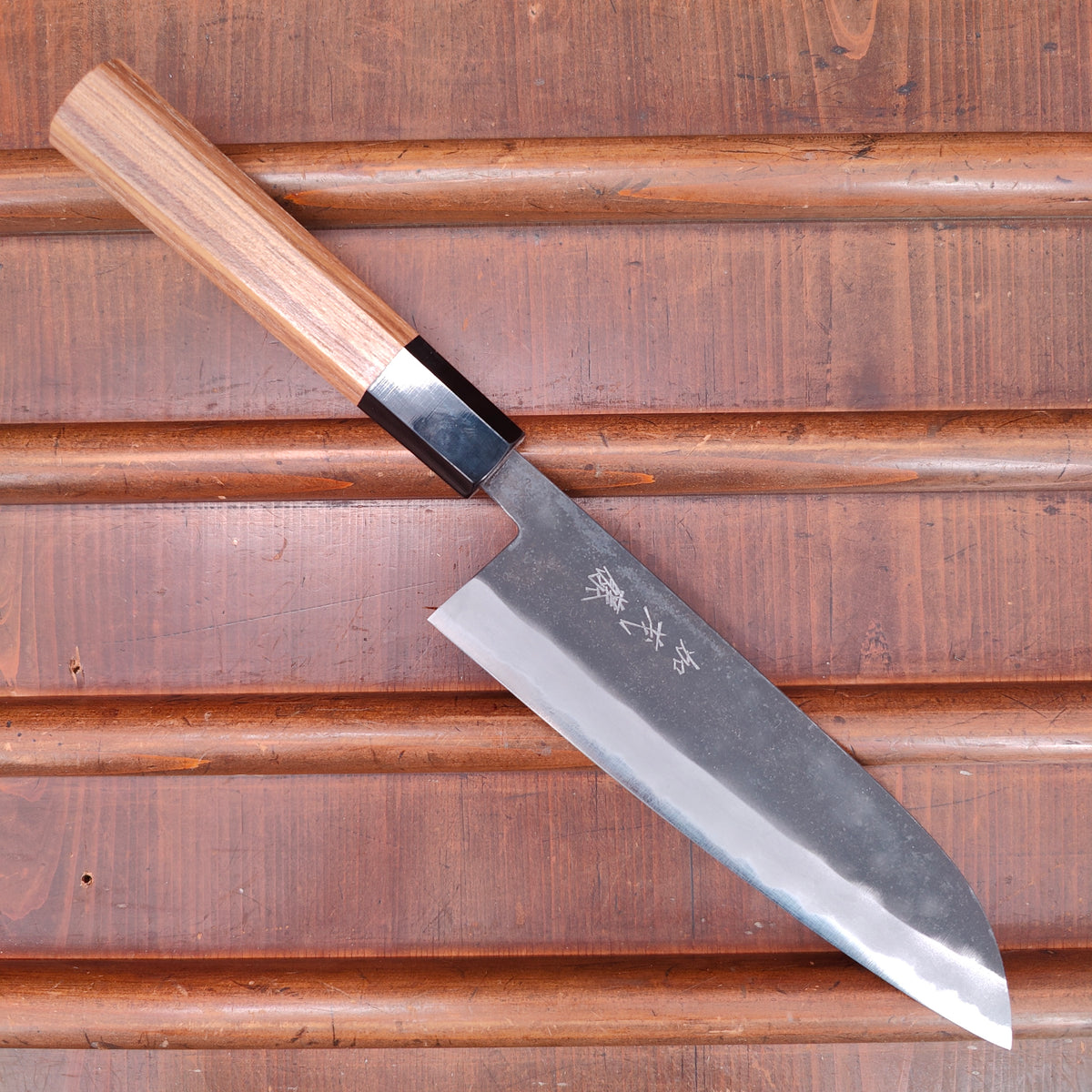
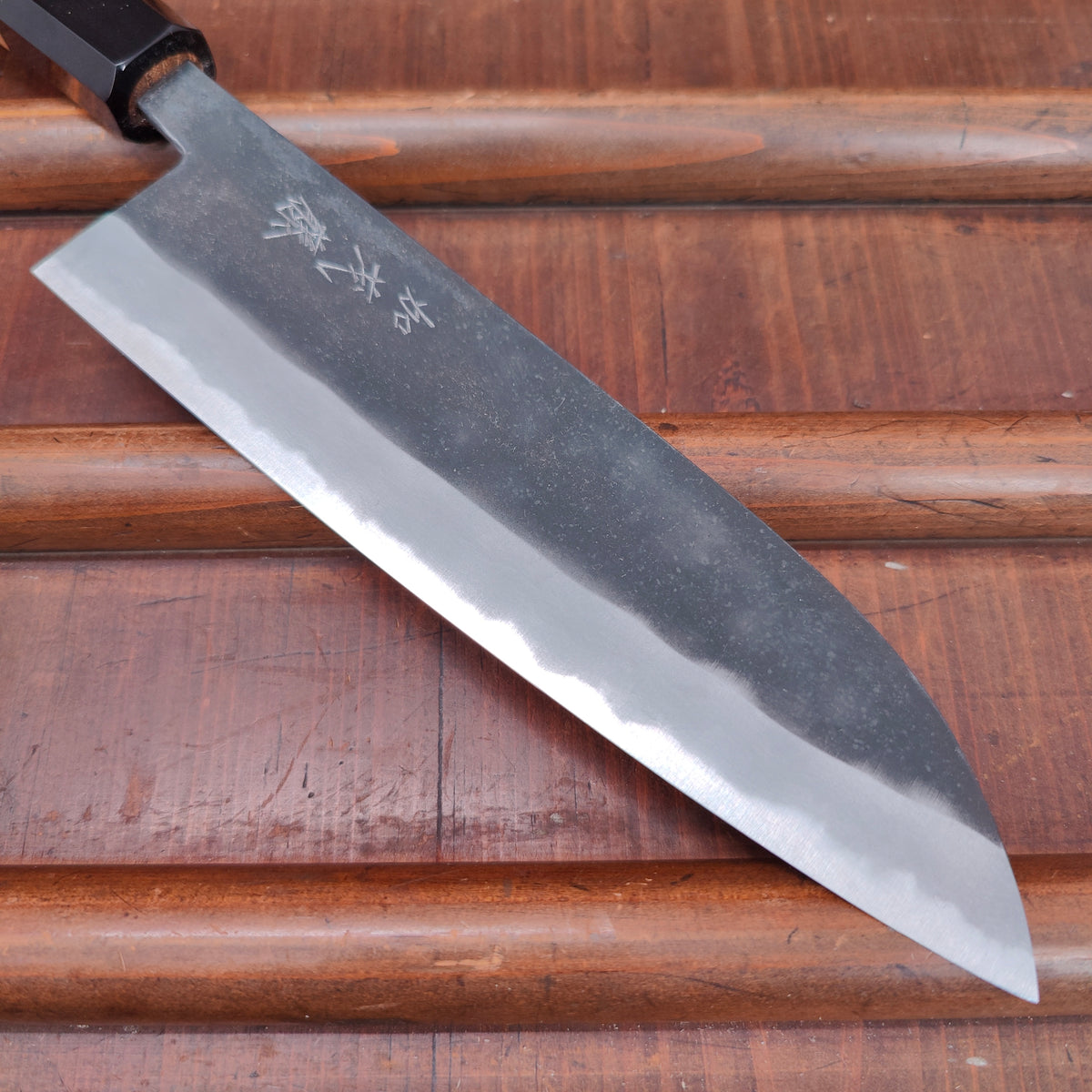
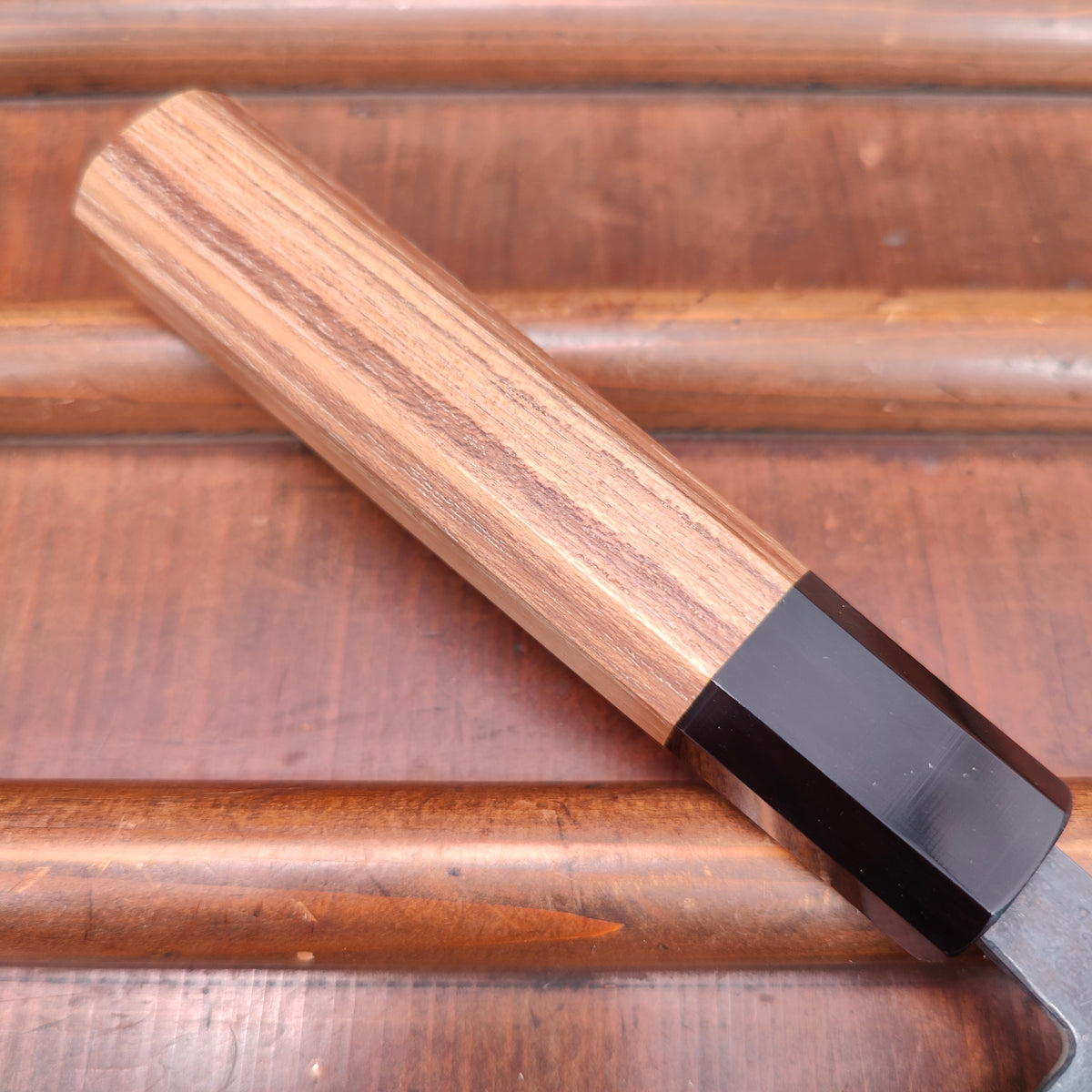
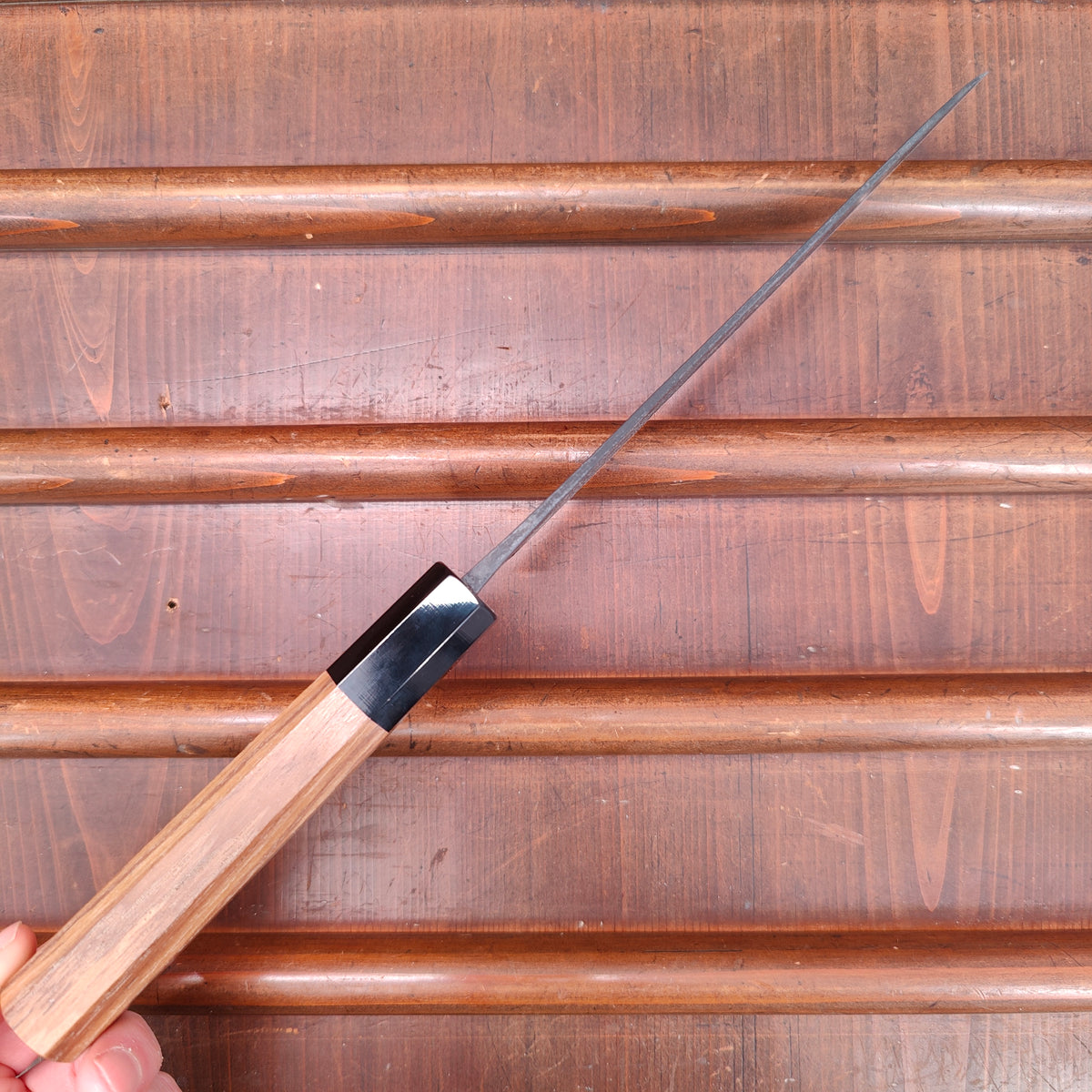
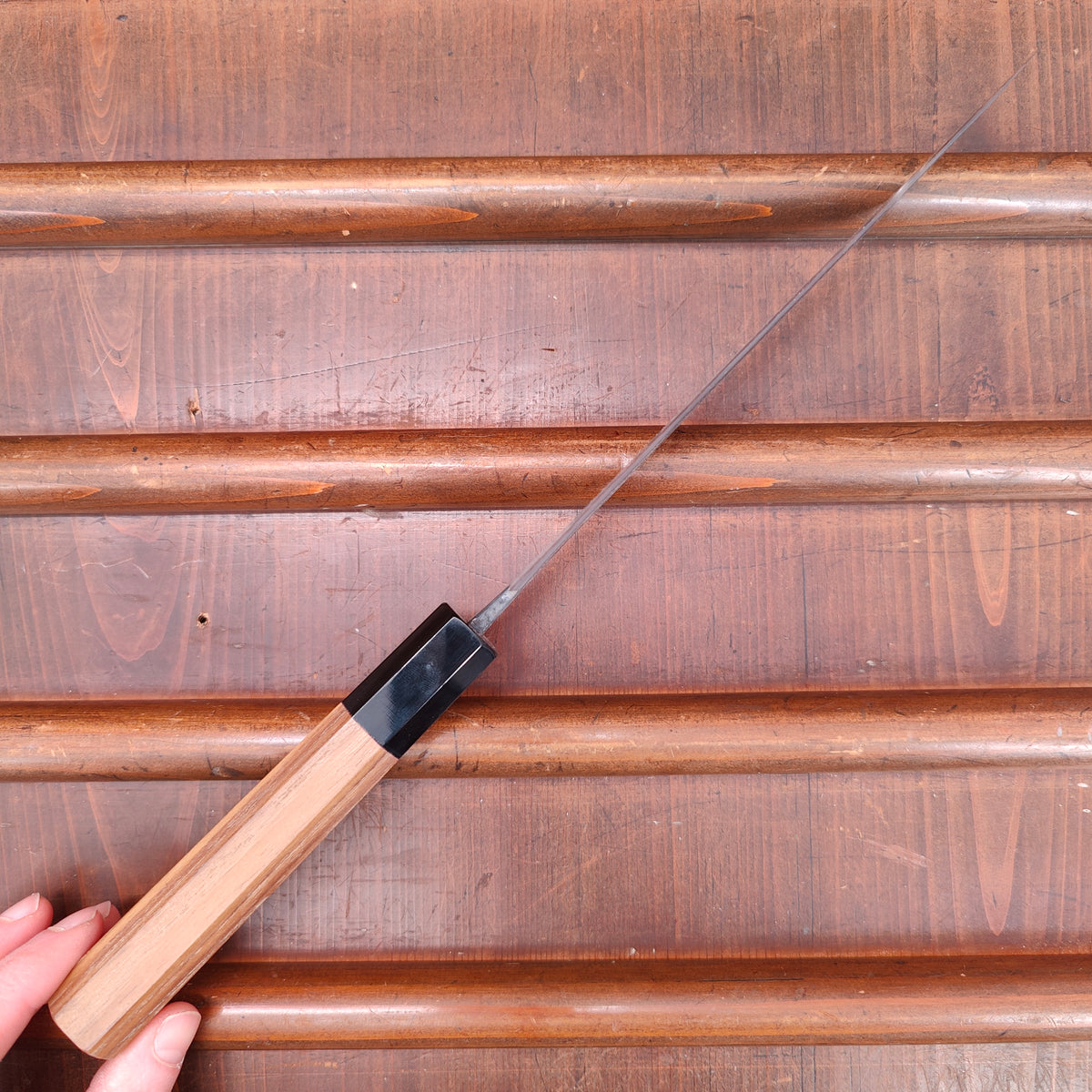
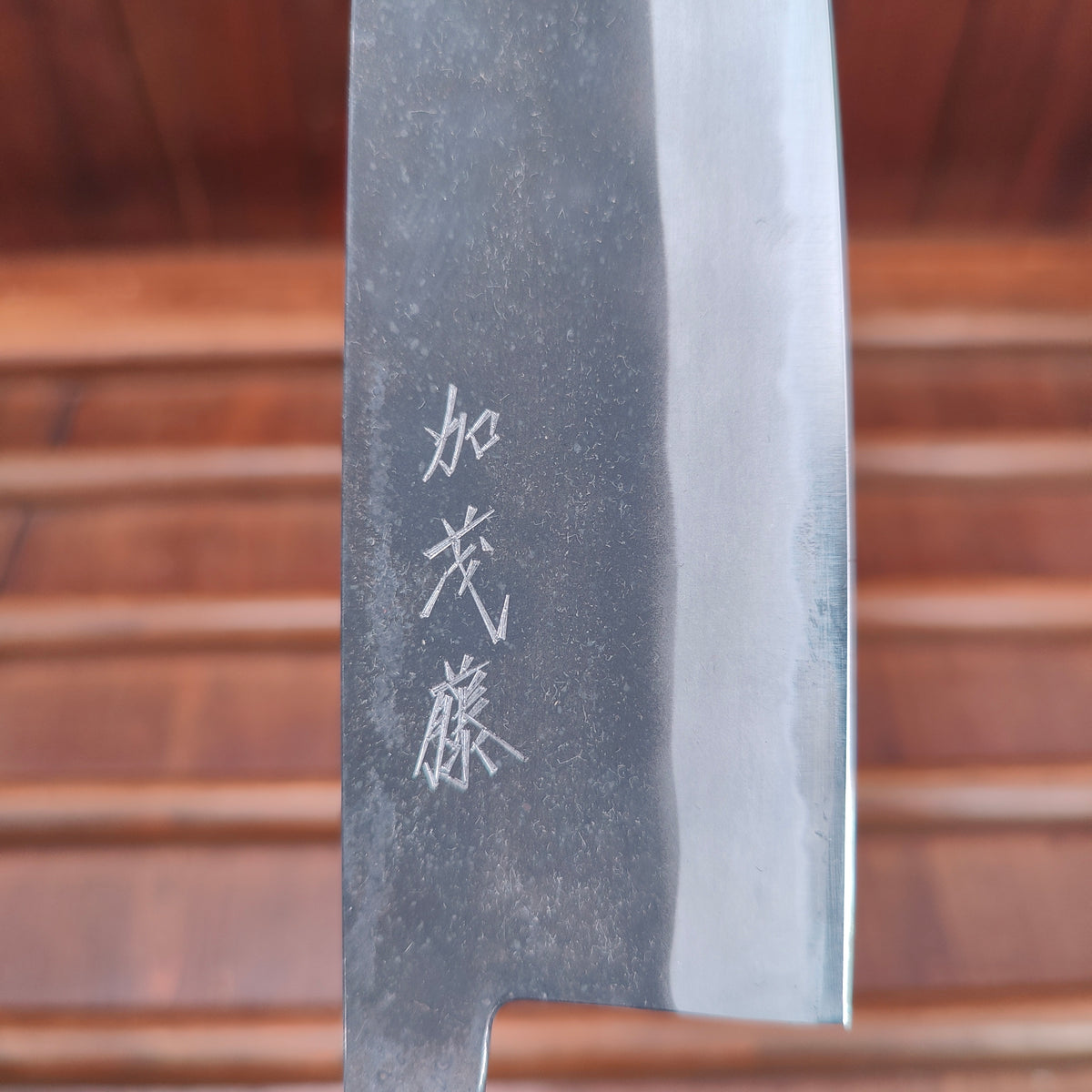
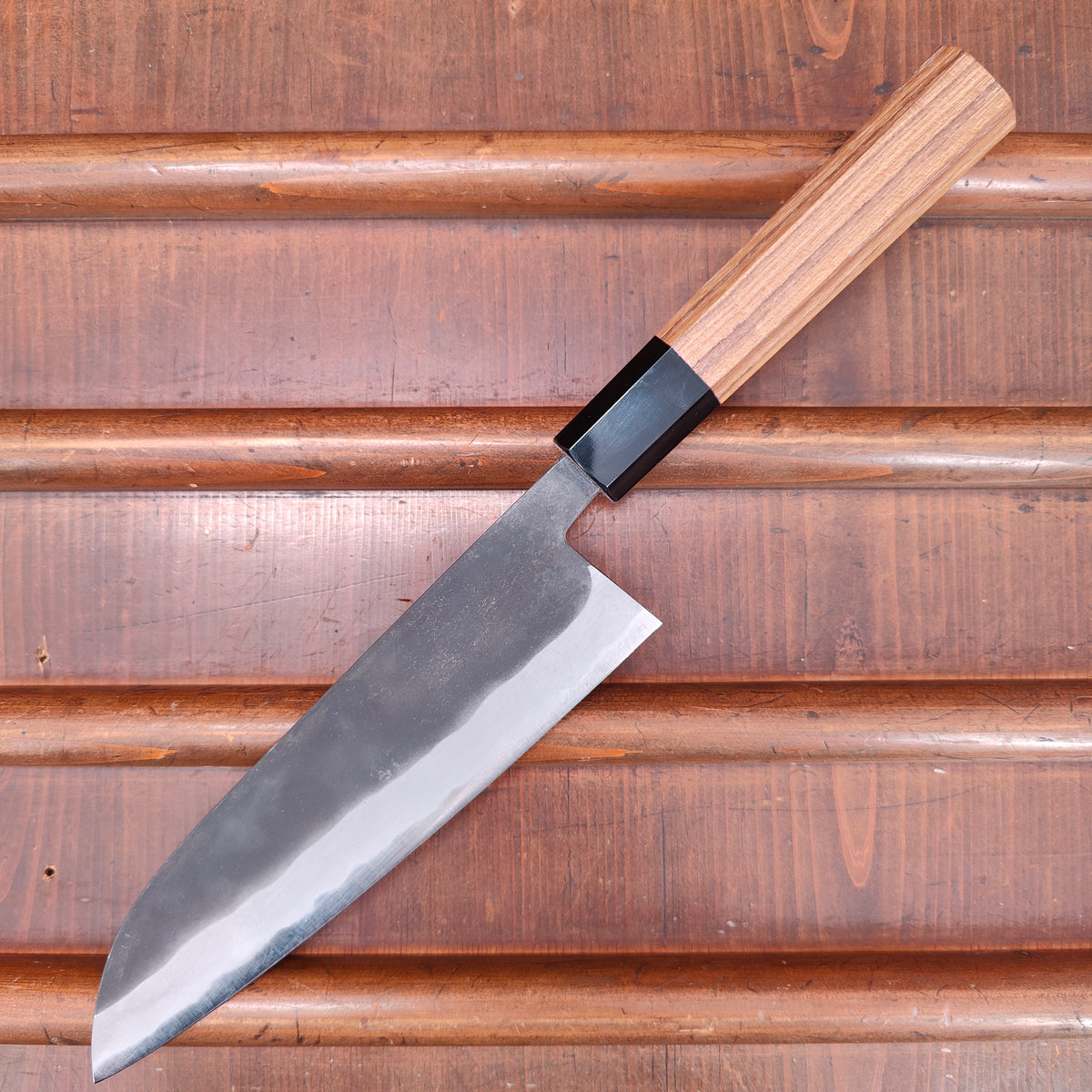
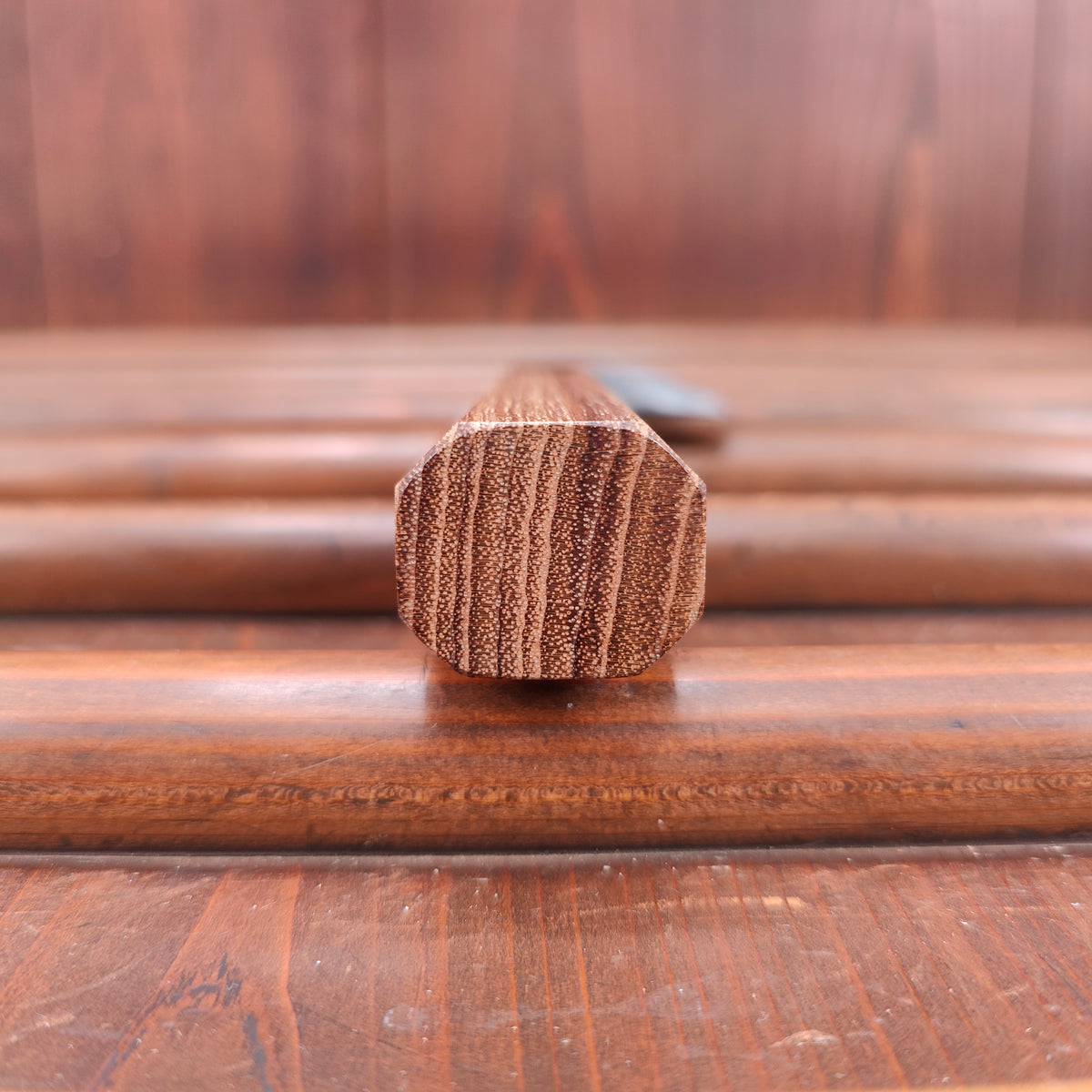
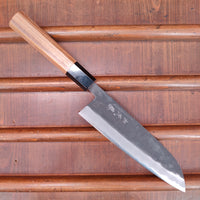
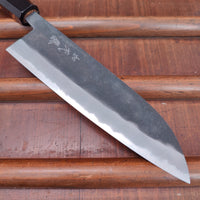
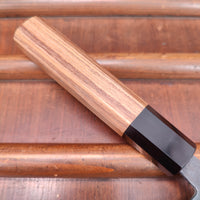
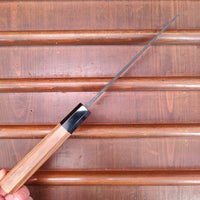
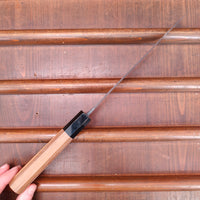
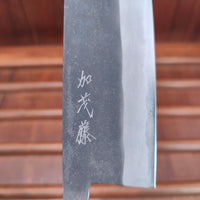
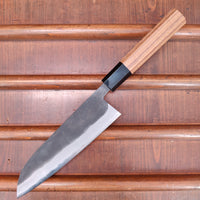
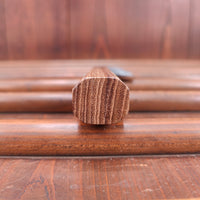
Kamo Shiro 180mm Santoku Aogami Super Kurouchi Teak Horn
-
Regular Price
-
$214.83
-
Sale Price
-
$214.83
-
Regular Price
-
Sale
Sold Out
-
Unit Price
- /per
- Regular Price
- $214.83
- Sale Price
- $214.83
- Regular Price
- Unit Price
- /per
Hand forged in Takefu Japan by blacksmith Shiro Kamo with an iron clad aogami super core and horn ferruled teak handle.
Aogami super is famous for it's edge duration, the addition of tungsten and vanadium to it's alloy make for a toothy cutting feel as the edge begins to dull, aogami super holds its peak sharpness well but really gets its duration from it's ability to cut well as it dulls.
These represent an affordable style of knifemaking that Takefu is known for, this is going to do best sharpened at 3-4K rather than a finer finish that a more thorough treatment of aogami super will work well at.
This knife has a hard carbon steel core with iron cladding for added durability. The entire blade will develop a patina with use, especially with acidic foods. Special attention is needed to keep from rusting. Do not leave wet. Hand wash & dry, no dishwasher. Hardwood-end grain or softwood long grain cutting boards are preferred; avoid bamboo and plastic cutting boards. Rust can be removed with a light abrasive.
Brand: Kamo ShiroProducing Area: Takefu Japan
Profile: Santoku
Size: 180mm
Steel Type: Carbon Steel
Steel: Aogami Super
Handle: Teak Horn
Total Length: 321mm
Edge Length: 181mm
Handle to Tip Length: 193mm
Blade Height: 45mm
Thickness: 2.8mm
Handle Length: 129mm
Weight: 130g
Hand Orientation: Ambidextrous
Saya: Bernal Cutlery 180mm Santoku Magnetic Saya - Sold Separately
This is a carbon steel knife. Carbon steel is expected to develop a dark patina with use. It needs to be hand washed and dried immediately after use. Do not air dry. Do not put it in the dishwasher. Long exposure to moisture and debris will result in rust. Any rust development should be removed with a light abrasive.
Twisting, scraping, and heavy use, as well as use on hard and very dense objects can lead to edge damage. Use on a quality wooden cutting board will help the knife stay sharper for longer. Use on hard surfaces like plates and bamboo will reduce the edge life and can result in edge damage. Special attention needs to be taken to prevent edge damage. Scraping, twisting and forceful as well as using on hard or very dense foods can result in chipping.
We recommend hand sharpening on whetstones. We have found that most Japanese knives perform best at a finer finish starting around 4000. Avoid pull through sharpeners and non-water cooled mechanized sharpening. Ceramic honing rods are preferred.
Recently Viewed
About Bernal Cutlery
We are a full-service cutlery shop offering sharpening services, Japanese and Western culinary knives, vintage knives, outdoor, pocket and craft knives, cooking tools and accessories. We also offer knife skills and sharpening classes, and more.
We are proud to serve kitchen professionals, knife enthusiasts and home cooks alike. Located in the Mission District of San Francisco, California.
